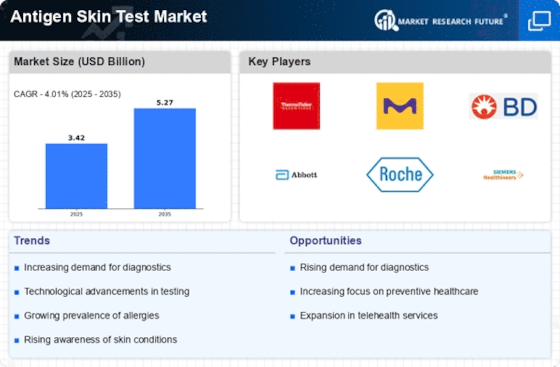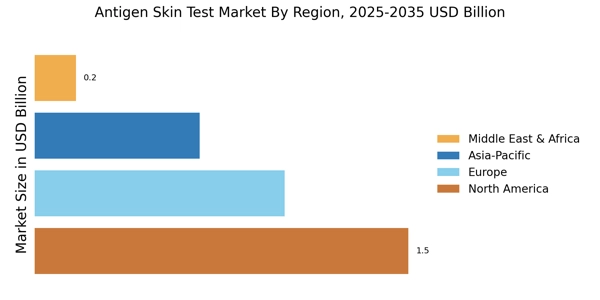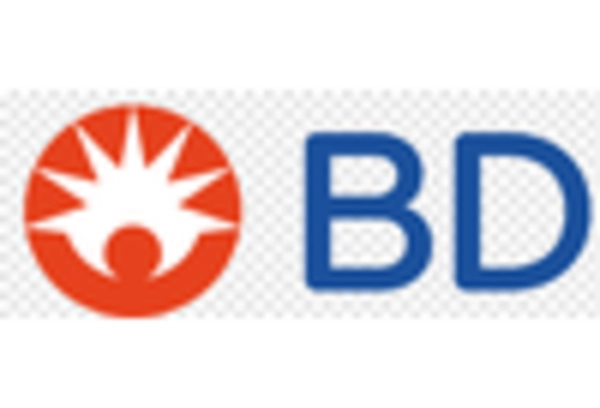Rising Prevalence of Allergies
The increasing prevalence of allergies across various demographics appears to be a primary driver for the Antigen Skin Test Market. As more individuals experience allergic reactions, the demand for effective diagnostic tools rises. According to recent data, approximately 30% of the population is affected by allergies, leading to a heightened need for antigen skin testing. This trend is likely to continue, as environmental factors and lifestyle changes contribute to the growing incidence of allergic conditions. Consequently, healthcare providers are increasingly adopting antigen skin tests to accurately diagnose and manage these allergies, thereby propelling the market forward.
Increased Healthcare Expenditure
The rise in healthcare expenditure across various regions appears to be a significant driver for the Antigen Skin Test Market. As governments and private sectors invest more in healthcare, the availability of funds for diagnostic tools, including antigen skin tests, increases. This trend is particularly evident in countries where healthcare reforms are underway, leading to improved access to allergy testing services. With an estimated increase in healthcare spending projected to reach trillions in the coming years, the market for antigen skin tests is likely to benefit from this financial support, facilitating broader adoption and utilization.
Growing Awareness of Allergy Testing
There seems to be a growing awareness among the general population regarding the importance of allergy testing, which significantly influences the Antigen Skin Test Market. Educational campaigns and healthcare initiatives have contributed to this awareness, encouraging individuals to seek testing for allergies. As a result, the market for antigen skin tests is projected to expand, with an estimated growth rate of around 7% annually. This increasing awareness not only drives demand but also fosters a proactive approach to allergy management, leading to more individuals opting for skin tests as a first-line diagnostic tool.
Regulatory Support for Allergy Diagnostics
Regulatory support for allergy diagnostics is emerging as a vital driver for the Antigen Skin Test Market. Regulatory bodies are increasingly recognizing the importance of accurate allergy testing, leading to streamlined approval processes for new testing methods. This support not only encourages innovation but also enhances the credibility of antigen skin tests among healthcare providers. As regulations evolve to accommodate advancements in testing technology, the market is expected to experience growth. The facilitation of quicker access to reliable testing options may ultimately lead to improved patient outcomes and increased market penetration.
Technological Innovations in Testing Methods
Technological advancements in testing methods are likely to play a crucial role in shaping the Antigen Skin Test Market. Innovations such as enhanced test accuracy, quicker results, and user-friendly testing procedures are emerging. These advancements are expected to improve patient compliance and satisfaction, thereby increasing the adoption of antigen skin tests. Furthermore, the integration of digital health technologies, such as mobile applications for tracking test results, may enhance the overall testing experience. As these technologies continue to evolve, they could potentially lead to a more robust market for antigen skin tests.


















